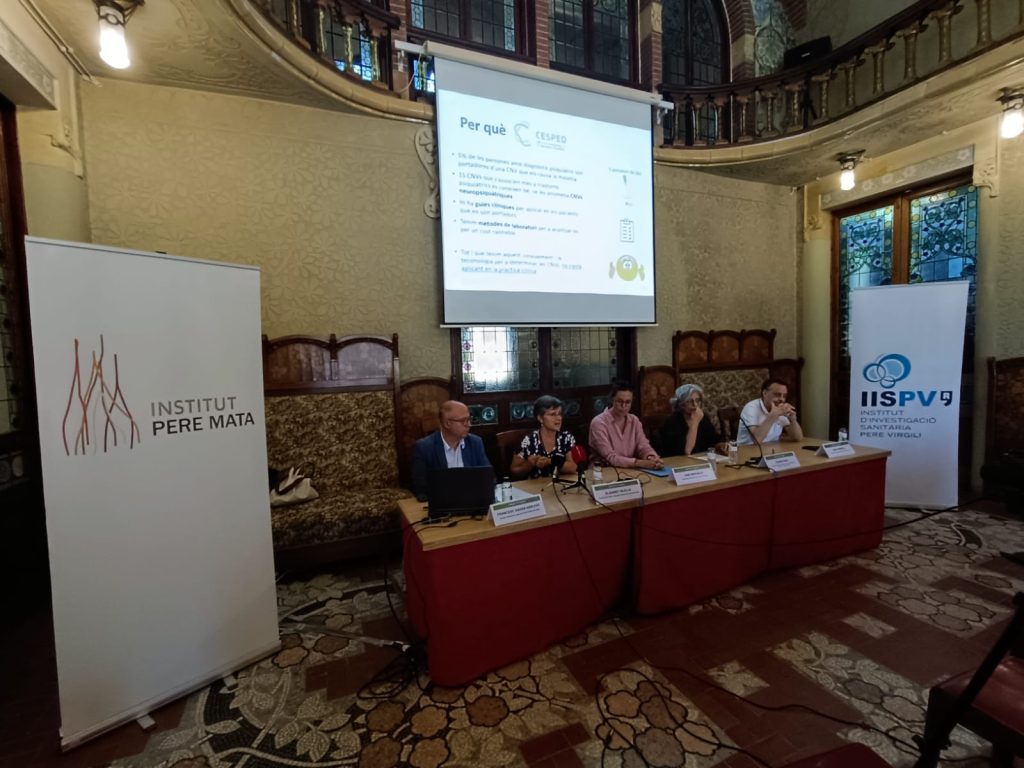
Reus, 21 June 2024. In general, genetics plays a very important role in the development of mental illnesses. In the case of schizophrenia or bipolar disorder, for example, it is estimated that 80% of the factors involved are genetic, with the remaining 20% having to do with the environment in which we live. The World Health Organization (WHO) warns that one in four people will suffer from a psychiatric disorder during their lifetime.
The Research Group on Genetics and Environment in Psychiatry (GAP) of the Pere Virgili Health Research Institute (IISPV) and the Pere Mata University Hospital has been studying the genetics of mental illness for more than three decades and has now received a grant of almost 1,700,000 euros from the Carlos III Health Institute (Spanish Ministry of Science and Innovation) to continue this line of research. This financial boost will allow them to launch the project, known as CESPED, which aims to develop a new clinical screening protocol to better detect and personalise a type of alteration consisting of the loss or gain of genetic material, which is often the cause of psychiatric diagnoses.
The screening protocol that this team of researchers will use will include parameters that have not previously been considered by psychiatric professionals and that are related to this change. This protocol will also be based on other medical conditions, such as whether the person suffers from heart problems, has a deficient immune system or whether the level of calcium in the blood is higher than normal. In addition, the shape of the face and the composition of its elements will be taken into account, as unusual facial features (eyes that are too far apart or a deformed lip or ear) could indicate the presence of this disorder. Finally, an inexpensive genetic test will be added to the screening tool. With all this data, researchers will be able to assess the likelihood that the patient is a carrier of a loss or gain of genetic material.
It is estimated that about 4% of people with a severe psychiatric diagnosis carry one of these genetic variants that explain their illness. If the risk is high, the research team will recommend that the patient be assessed in a clinical genetics unit and facilitate referral to this service.
In the future, this genetic information will allow psychiatrists to diagnose and treat some of the most common disorders, such as autism spectrum disorders, ADHD (attention deficit hyperactivity disorder), bipolar disorder, schizophrenia and other psychoses, earlier, more effectively and in a more personalized way.
The research team that will carry out this study is coordinated by Dra. Elisabet Vilella, director of Research at the Institut Pere Mata University Hospital and Deputy Director of the IISPV and is made up of 17 research groups from hospitals all over Spain. Twelve of these groups are part of the prestigious mental health research network CIBERSAM, funded by the Instituto de Salud Carlos III. In addition, the Clinical Genetics Unit of the clinical laboratory of the Catalan Institute of Health Camp de Tarragona and Terres de l’Ebre (located at the Joan XXIII University Hospital) has been added to the study, which will participate in the project intervening in diagnosis and genetic counseling, and developing continuous training for mental health professionals in order to facilitate the identification of possible cases. In addition, it will identify cases that deserve to be referred to the respective clinical genetics units for advice.
The Clinical Genetics Unit
The Clinical Genetics Unit of the Joan XXIII University Hospital begins its first steps in 2019 to respond to the needs of patients with minority diseases and to the demand of healthcare professionals to advance in the field of diseases with genetic basis and personalized medicine. During those years, this multidisciplinary unit, made up of people with different professional profiles, has been consolidating and is presented in society practically at the same time as this important collaboration with the Pere Mata Institute.
This scientific collaboration between mental health teams and the Clinical Genetics Unit may highlight the future need for multidisciplinary teams to detect, identify and follow up people with genetic variants implicated in their psychiatric diagnosis.